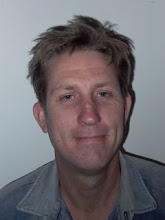Ryan, Janette and Louie, Kam (2007) False Dichotomy? 'Western' and 'Confucian' concepts of scholarship and learning. Educational Philosophy and Theory. 39 (4) Pg 404-417
'We don't see things the way they are, we see things as we are' Anais Nin.
This paper was a good way of challenging my preconceived ideas of different educational approaches, and at the end of the paper I was ashamed of my own biases when teaching foreign students by projecting my own image of passivity onto them, and not being generous enough to understand that my own behaviour of questioning was the result of much practice and cultural acceptance in doing so.
The authors were also very good in pointing out that a middle ground was a desired outcome, to explore what was good in each paradigm and combining them to create a richer 'learning' environment. And that includes role-modeling. A good teacher is open to learning and should demonstrate life-long learning and self improvement (a mainstay of Confucian learning, as pointed out in the paper).
In a recent conversation with my mother I was taken aback by her attitude to Aborigines (Aboriginines, as she pronounced it). It also made me more aware that we change over time, although we may be unaware of it because it is a subtle movement. My mother was raised on a station in Marble Bar and spent a lot her time with the mothers and children of the local population. This was in the days when the men worked as stockmen in return for flour, tea, blankets, jam and tobacco. We see this as exploitation now, however the way Mum tells it the aboriginals had dignity in their horse skills and ability to provide for their families. There certainly wasn't the welfare mentality that Noel Pearson rallies against.
So what made my Mum change her opinion? When I challenged her she said that it was from her experiences nursing, as I guess our community services often deal with the tragic side of our 'society'. In my experience the police have the most prejudiced views of all our community groups, and I guess they have developed a fortress mentality as they are continually under siege, with the threat of violence never far away. Like the army, you need a strong, cohesive culture to deal with that kind of threat. I could also hear in Mum's language the prevailing attitude of the 'Bowling Club' and the entrenched position our older generations hold.
So bringing it back to an educational context, we need to see learners as individuals, not labels, because there are a multitude of attitudes even within a defined group. We should be aware of the complexities, rather than dumb down to simplistic models of reality, try to draw out the positive aspects and develop a deeper understanding of views other than our own.
Blog>> The Knowledge Manager’s Handbook Wins An Award!
-
Well that was a nice piece of news for a Tuesday morning: my book with Nick
Milton The Knowledge Manager’s Handbook has won CILIP UK’s prestigious K&IM
Inf...
6 years ago




No comments:
Post a Comment